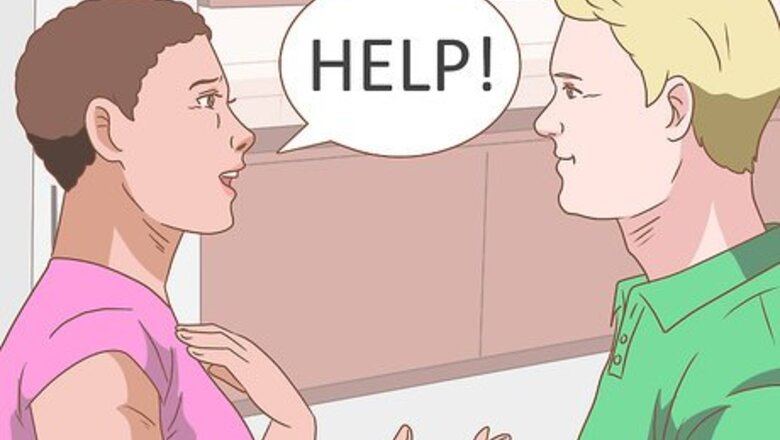
views
Reorganizing Your Schedule
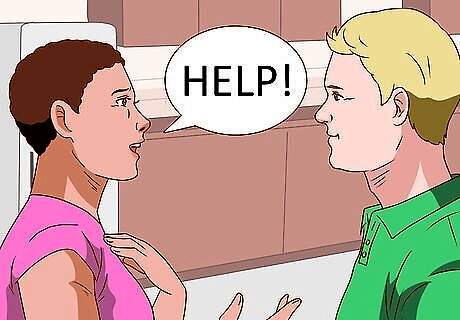
Ask for help. Recognize that you have too many things to do, and ask someone to help you get some of your tasks taken care of. Obviously, there are some cases where you cannot do this, but in many cases, there will be some work that someone else can take care of. For example, if you have a very busy week coming up, and you don’t know how you’ll manage it all in addition to making dinner every night for your family, ask your partner if they can take over dinner duty. If you don’t have a partner, see if you can find help another way. If you aren’t sure how to ask, you can try saying, “I’ve really over-committed myself this week. It would be a big help if you could take care of dinner for the next couple of nights. Would that be OK for you?” In today’s technology age, you can get almost anything delivered to your home, even groceries. Why not pay a service to do your grocery shopping for you?
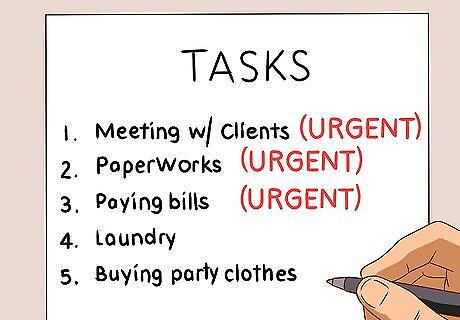
Prioritize your schedule. Think of the things you have to do that are most important to you or the things that you have to do (e.g. work to make money so you can pay your bills). Schedule your top priorities into your day. Then, order the things that you’d like to do, but don’t have to do in order. Put the things you’d most like to do at the top of the list, and the things that are the least important to you at the bottom. Use the time you have left in your schedule to do those things, starting with the most important things, and doing the things that are least important whenever you have a bit of extra time. This also means including free time. It may seem oxymoronic to schedule free time, but if you feel that you are overextended it is important to view that time as time in your calendar where you are not free to do other things. If you don’t do this, you’re more likely to over-commit yourself to other things. For example, if you often find that you have something going on every night after work, you might set one night a week where you don’t go to any social events after work. During this time, you can spend your evening relaxing at home, whatever that means for you.
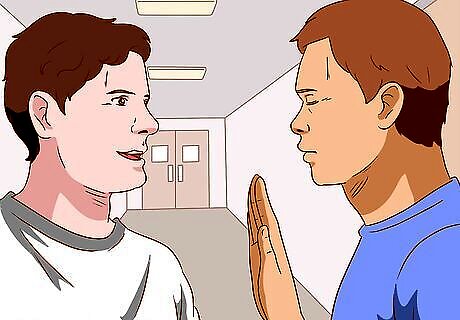
Learn to say “No” to people. Many people end up overextending themselves because they don’t want to let anyone down. You don’t even think about it before offering to help out your neighbor, or agreeing to watch your sister’s dog. Unfortunately, this means you’ll have one more thing to take care of in addition to all of the other things you have going on. Try to be more aware of agreeing to help someone out, and be honest if you simply don’t have the extra time. For example, you can say, “I’d really love to help you out, but I simply have too much going on right now.” If you want, you could make a suggestion about someone else you know that might be able to help them, though it isn’t completely necessary. Remember that you don’t have to justify your decisions to people. You may feel like you’re being rude, but you aren’t. In order to take control of your tasks, you have to practice putting your own well-being before the needs of others.
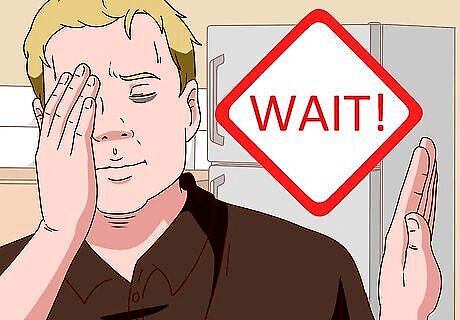
Remind yourself that some things can wait. When you prioritize your schedule, you’ll have the things that absolutely cannot wait (e.g. going to work, making food to eat, etc.), but you will also notice that there are some things that can wait until later. When you feel overextended, remind yourself that you’re not a superhero. You don’t have to do everything for everyone, and some things can wait until another day. For example, your home doesn’t have to be constantly ready to be shown on the cover of a magazine. A little dust won’t make anyone think less of you. Likewise, unless you are completely out of clean clothes to wear, your laundry can probably wait another day or two.
Making Time for Yourself

Get some exercise. There is lots of research confirming the importance of exercise for reducing stress. You might think you don’t have time for it, but just like all the other things you are doing, you have to make time for it. In this case, you have to make it a priority. If you don’t enjoy traditional exercise (e.g. lifting weights, running, swimming, etc.) that’s OK. Find a way to get moving that you do enjoy, even if it is just walking. Even just 20 minutes of brisk walking each day can make a huge difference in how you feel. Start with that and work your way up, if you aren’t sure where to begin. This will give you time that is just for you and nothing else, and the endorphins will help you feel less stressed at the same time.
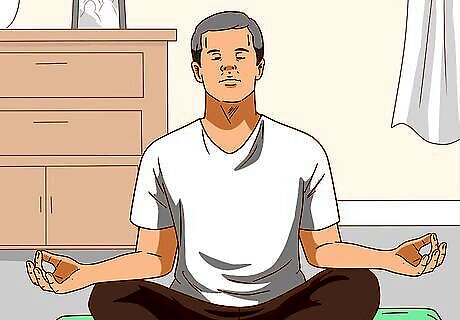
Meditate. Meditation is a great way to give you some time to focus only on yourself and the moment that you are in. You don’t have to meditate for hours, or even 30 minutes if you don’t have the time or don’t want to. Spending even one or two minutes focusing on nothing but your breath can be a great way to feel a little less frazzled. For example, if you’ve only got a few free minutes, find a quiet place where you can sit quietly. Set an alarm on your phone or watch for one to three minutes. Close your eyes. Until the alarm goes off, all you have to do is breathe, and focus on your breathing. Don’t think about any of the things you still have to do, or worry about something that hasn’t been done. When the alarm goes off, you can go back to whatever you were doing. Another, more active form of meditation that many people find enjoyable is yoga. If you can’t stomach the thought of sitting quietly, thinking about nothing, yoga might be a more appealing way to relax.
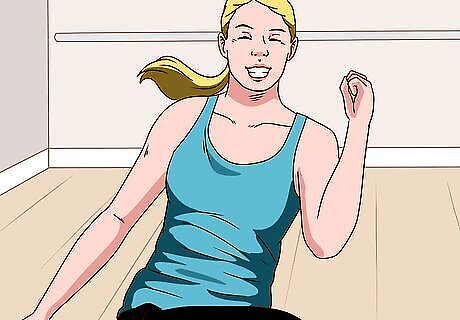
Do anything you enjoy. There are lots of stereotypical suggestions that can be made about what you should do to help yourself unwind. However, what works for everyone else might not work for you. Therefore, you should do whatever it is that you find relaxing and enjoyable. If exercise, meditation, or yoga work for you, then great. If it doesn’t sound appealing to you, then think about what does. For example, for many, cleaning, working on cars, and mowing the grass, are all chores that have to be done, but if it is what helps you relax, then you should do it. There is no correct way to unwind.
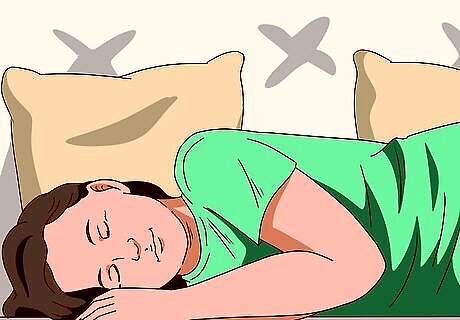
Do nothing. For some people, the best way to recuperate from a lot of stress is to simply do nothing every now and then. That can be whatever it means to you. For some people, doing nothing might mean sleeping all day on Saturdays. For other people, doing nothing might be watching whatever is on TV or simply sitting in the park watching people go by. In today’s society, many people feel a lot of pressure to constantly be doing something. Just being for a little while can be a big help. On the other hand, if you constantly find yourself lacking the motivation to do anything at all (e.g. get out of bed, do things you would normally enjoy, maintain your hygiene, etc), you could be suffering from depression. Depression is a difficult illness to deal with, especially alone; thus, you should see your doctor as soon as possible if you think you may be suffering from this illness. They can refer you to a mental health specialist.
Recognizing There is a Problem
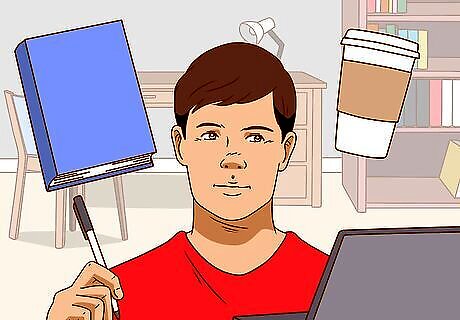
Understand that there is no definitive way to be sure. Problems such as overextending yourself can sometimes be difficult to identify. It isn’t like a broken leg or the flu; you can’t look at a list of symptoms and know for sure. This is because everyone is different. Some people thrive on a lifestyle that keeps them busy every moment of the day, while some people find this lifestyle overwhelming and stressful. Some people aren’t as aware of their feelings, and so they may not even realize they are overextended. Determining whether or not you are overextended is largely an exercise in self-awareness. You have to take some time to really think about how you’re feeling both emotionally and physically. Your body will tell you if you’re doing too much. Do take it seriously if your loved ones and others you trust tell you you're overextended. They may be able to see things you don't feel quite yet.

Consider how you feel. If you are overextending yourself, you might feel anxious, worried, or stressed, and you probably don’t feel very energetic. Taking time to reflect on how you’re feeling both emotionally and physically can give you a good idea about whether or not you are overextending yourself. For example, a person who is overextended likely spends a lot of time feeling worried about time itself. When you have too much to do, every minute counts. This can be very stressful for most people.

Take note of how often you sit down for a meal. A person who is overextended will often eat on the go. You might be picking up a sandwich that you eat in the car on the way to your next commitment, or you might not even be eating throughout the day at all; not because you don’t want to, but simply because you have too much to do. This is a sure sign that you’re overextending yourself. Of course, there may be the odd day that you can’t sit down for 15-30 minutes to have your lunch, but if this is happening regularly, you should do something to make your schedule more manageable. Food is fuel for your body. There are lots of different ways that people spread their meals out throughout the day, and you should do what works best for you. However, try to be conscientious about what you eat. If you constantly eat on the go, you’re more likely to eat whatever is convenient. Unfortunately, convenience foods are usually not the healthiest.
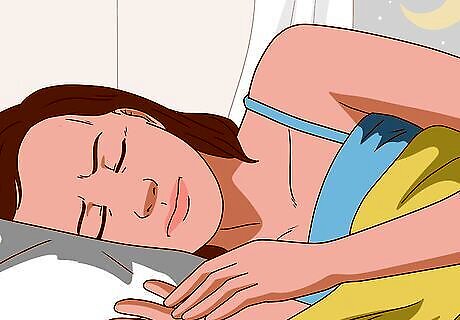
Look at your sleep habits. If you often find yourself thinking that there simply aren’t enough hours in the day to do everything, you’re probably overextending yourself. You might try to find a few more hours by cutting out a couple hours of sleep every night. If you are trying to sleep, you might find it difficult because you are too caught up worrying about all that you need to get done. This works in a sort of vicious cycle; the more work you have to do, the less good quality sleep you get, the more tired you are, the more difficult it becomes to accomplish everything, and so on. Do your best to break out of this pattern. Try to improve your habits. For example, you can do this by making a rule for yourself that you will get in bed at a certain hour every night. Most adults need between 7 and 9 hours of sleep each night, so try to aim for at least the minimum. Try to find a way to get electronics out of your routine a few hours before bedtime. The blue light from smartphone screens, TVs, and computers makes it more difficult to get to sleep. If you must do something on the computer, try downloading an app that helps reduce the amount of blue light in the screen during hours of darkness.

Take care of your health. A person who is overextended is under a lot of stress. This is coupled with not eating healthy, not having time to exercise, and not getting enough sleep. This is a terrible combination for your health. Thus, the state of your health can be a good indicator of whether or not you are overextending yourself. Of course, not all health conditions are directly related to how well you take care of yourself, but a lot of them are. If you are noticing new aches and pains, headaches, skin rashes, etc. These could all be signs that your body is not being taken care of. Make sure that you visit your doctor if you have any unexplainable symptoms occurring as they could be a sign of a serious health condition. As a busy person, you may think you don’t have the time, but nothing is more important than your health.



















Comments
0 comment